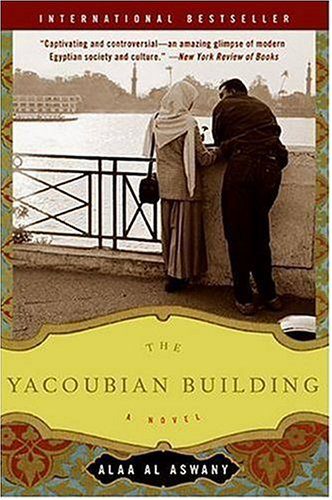Book Review: The Yacoubian Building January 17, 2015 01:30
By Alaa Al Aswany, The American University in Cairo Press, 2004, 245 pp.
Reviewed by Amie Daraves

A rare and penetrating look into modern Egyptian society can be found in Alaa Al Aswany’s novel, The Yacoubian Building. Set in an actual building in downtown Cairo, the controversial best-seller weaves together the lives of several characters to create a daring social critique.
From the underprivileged locals who squat on the roof, to the building’s legitimate tenants—a politician, a store owner, and a gay scholar—the Yacoubian is home to Cairenes young and old, rich and poor. Representing a cross-section of class and religion in Egypt, as their lives unfold for the reader so, too, do the many hardships of contemporary Cairo life. By intertwining their stories, Al Aswany creates an ensemble of sympathetic characters living at the crossroads of change in a modernizing society.
Since it was first released in Arabic in 2002, The Yacoubian Building has been shrouded by controversy in a country where the Ministry of Information (and, by extension, the state-owned media) have a history of controlling content with an iron fist. By using non-traditional characters, Al Aswany sheds light on a number of the country’s most sensitive taboos, most notably corruption, prison torture, homosexuality, and the rise of fundamental Islam. Thus the underlying tension, which the novel boldly puts forth, is one of religious morality versus secularism, and one of tradition versus modernity.
Indeed, The Yacoubian Building was a rare victory for freedom of expression in Egypt. Regrettably, in July 2006 the Egyptian Parliament censored the film version of the novel.
Amie Daraves is a Washington Report on Middle East Affairs, intern.
